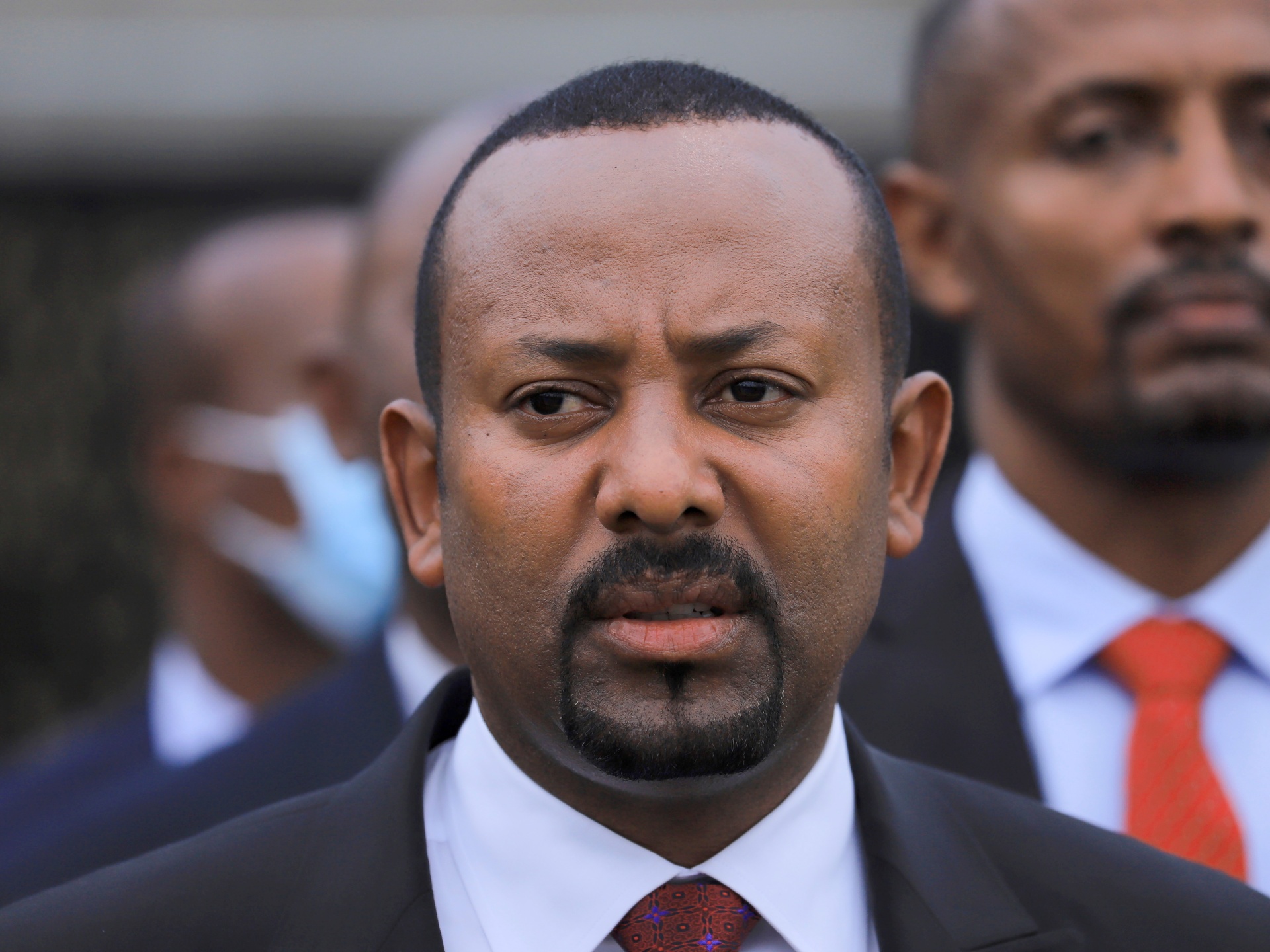Abiy Ahmed holds first face-to-face talks with Tigrayan leaders since a peace deal was agreed in November.
Ethiopian Prime Minister Abiy Ahmed has held his first face-to-face talks on Friday with Tigrayan leaders since a peace deal was inked ending two years of war, officials and state media said.
Abiy met senior leaders of the Tigray region forces on Friday about three months since the Addis Ababa government and the Tigray People’s Liberation Front (TPLF) signed agreements to permanently cease hostilities.
The conflict, which has at times spilled out of Tigray into the neighbouring regions of Amhara and Afar, has killed thousands of people, displaced millions from their homes and left hundreds of thousands on the brink of famine.
Abiy’s national security adviser Redwan Hussein said on Twitter that the prime minister and other officials “met today and held discussion with the TPLF delegation regarding the progress of the peace process.” The Ethiopian Broadcasting Corporation confirmed the report.
“As a result, PM Abiy passed decisions about increasing flights, banking & other issues that would boost trust & ease lives of civilians,” he tweeted.
PM Abiy,DPM Demeke & other officials have met today and held discussion with tplf delegation regarding the progress of the peace process. As a result, PM Abiy passed decisions about increasing Flights, Banking & other issues that would boost trust & ease lives of civilians pic.twitter.com/pXqLre9W7t
— Redwan Hussien (@RedwanHussien) February 3, 2023
Under the terms of the peace deal, the TPLF agreed to disarm and re-establish the authority of the federal government in return for the restoration of access to Tigray, which was largely cut off from the outside world during the war.
State media said it was the first time Abiy had held consultations with the so-called Peace Agreement Implementation Coordination Committee set up after the November 2 signing of the breakthrough deal in the South African capital Pretoria.
The two sides evaluated “actions carried out on the implementation of the Pretoria and Nairobi peace agreements so far”, the Ethiopian Broadcasting Corporation said, referring to a follow-up deal hammered out in the Kenyan capital on November 12.
They also discussed issues that “need further attention,” it said, adding that the meeting took place at a resort in southern Ethiopia.
Since the deal was signed, there has been a small-scale resumption of aid deliveries to Tigray, which has long faced dire shortages of food, fuel, cash and medicines.
Basic services, such as communications, banking and electricity, were slowly being restored to the stricken region of six million people, with the national carrier Ethiopian Airlines resuming commercial flights between Addis Ababa and Tigray’s capital Mekelle last month.
The TPLF announced it has begun disarming, while the United States said late last month there was an “ongoing withdrawal” of troops from neighbouring Eritrea who fought alongside government forces.
But local residents and aid workers have said the Eritrean army and forces from the neighbouring region of Amhara remain in parts of Tigray and accuse them of murder, rape and looting.
The US has imposed sanctions targeting the Eritrean army, as well as President Isaias Afwerki’s political party over its role in the conflict.
Eritrean forces have been accused of some of the conflict’s worst abuses, including gang rapes.
Asmara was not a party to the November deals, which called for the pullout of foreign and non-Ethiopian federal government forces, but there was no specific mention of Eritrea, whose government considered the TPLF an enemy.
